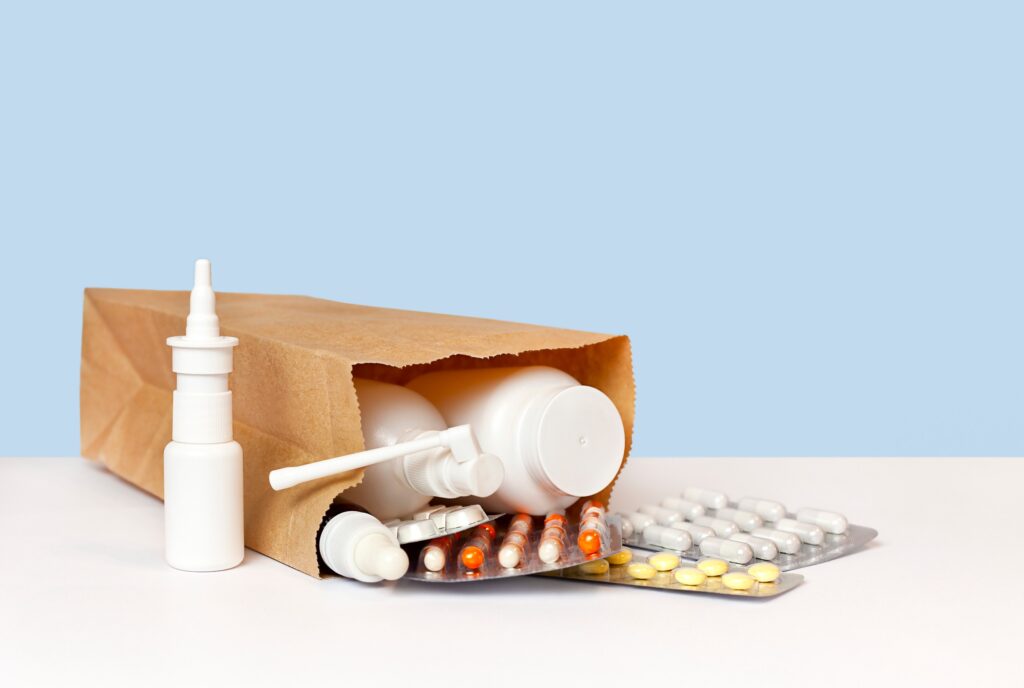Smart packaging is revolutionising the clinical trial industry. It ensures that drugs are delivered safely and efficiently to patients.
With smart packaging, tracking and monitoring of medication becomes easy. It helps reduce errors and improves patient compliance.
Importantly, it provides real-time data, which is crucial for decision-making. For pharmaceutical companies, adopting smart packaging technology can streamline operations and boost results.
Overall, it’s a game-changer for the industry, enhancing both safety and efficiency. In this blog post, we’ll explore the benefits of smart packaging for clinical trials.
The Benefits of Smart Packaging in Clinical Trials
Smart packaging offers numerous benefits that are critical to the success of clinical trials. Below are some of the key advantages:
- Enhanced Patient Compliance: With features like reminders and monitoring, patients are more likely to follow their medication schedules accurately.
- Real-Time Data Collection: Smart packaging enables the collection of real-time data, which is essential for timely decision-making and adjustments during trials.
- Reduced Errors: Automated tracking and alerts significantly reduce the risk of medication errors, ensuring that patients receive the correct dosage at the right time.
- Improved Efficiency: By streamlining the tracking and monitoring processes, pharmaceutical companies can save time and resources, focusing on other essential aspects of clinical trials.
Smart Packaging Innovations
What is Smart Packaging?
Smart packaging refers to packaging systems that incorporate technology to perform specific functions beyond just containing the product. In clinical trials, this can include everything from temperature monitoring labels to RFID tags that track the location and condition of the drug in real-time.
Examples of Smart Packaging in Clinical Trials
Some noteworthy examples of smart packaging in clinical trials include:
- Temperature-Sensitive Labels: These labels change color if the drug exceeds or falls below a certain temperature range, ensuring the drug’s stability.
- RFID Tags: These tags provide real-time tracking of the drug’s location and status, improving logistics and reducing the risk of loss or theft.
- Interactive QR Codes: Scanning these codes can give trial participants instant access to dosage instructions, potential side effects, and other critical information.
Key Challenges in Adopting Smart Packaging
Adopting smart packaging in clinical trials isn’t without its hurdles. Even though the benefits are substantial, several challenges need to be addressed to maximise the technology’s potential.
High Initial Costs
The cost of implementing smart packaging solutions can be a significant barrier for pharmaceutical companies, particularly smaller firms. While these systems can produce savings in the long term, the initial investment is often substantial.
- Capital Expenditure: Setting up the necessary infrastructure for smart packaging often involves considerable expenditure, which can be daunting.
- Maintenance Costs: Ongoing maintenance and updating of the technology can add to the financial burden.
Technological Complexity
The complexity of smart packaging systems can also pose challenges. Integrating various components such as RFID tags, temperature-sensitive labels, and interactive QR codes requires advanced technological expertise.
- Integration Issues: Ensuring that all the components work seamlessly together is crucial but can be difficult to achieve.
- Training Requirements: Staff members need to be adequately trained to handle and troubleshoot these advanced systems, which can be time-consuming and costly.
Regulatory Compliance
Ensuring regulatory compliance is another critical concern. Regulatory bodies might have stringent requirements for the incorporation of new technologies in clinical trials.
- Approval Processes: The approval process for smart packaging solutions can be lengthy and complicated.
- Compliance Costs: Meeting these regulatory standards can add to the overall costs and timelines of clinical trials.
Data Security
Given the sensitivity of patient data, ensuring robust data security measures is of utmost importance.
- Cybersecurity Threats: Advanced technologies bring with them the risk of cyber-attacks, making it essential to invest in secure systems.
- Data Privacy Regulations: Following data privacy regulations is crucial to protect patient information and maintain trust.
Practical Tips for Implementing Smart Packaging
Successfully adopting smart packaging in clinical trials requires careful planning and strategic execution. Below are some practical tips to help pharmaceutical companies navigate this innovative transition.
Develop a Comprehensive Plan
- Assess Needs and Capabilities: Begin by evaluating your specific needs and existing capabilities. Identify the areas where smart packaging can provide the most significant benefits.
- Set Clear Objectives: Establish clear goals for implementing smart packaging, such as improving patient compliance or ensuring data security.
- Budget Allocation: Allocate budget not only for the initial setup but also for ongoing maintenance and regulatory compliance.
Collaborate with Technology Partners
Working with experienced technology partners can simplify the implementation process.
- Research Vendors: Conduct thorough research to find vendors who specialise in smart packaging for clinical trials.
- Custom Solutions: Consider customised solutions that align with your trial’s unique requirements.
- Training and Support: Choose vendors who offer comprehensive training and ongoing support to ensure your team can operate the new systems efficiently.
Focus on Regulatory Compliance
Ensure you comply with all regulatory standards to avoid delays.
- Stay Updated: Keep abreast of the latest regulations related to smart packaging in clinical trials.
- Engage with Regulators: Maintain open communication with regulatory bodies to streamline the approval process.
- Document Everything: Maintain detailed records of your compliance efforts to ensure you can quickly address any regulatory inquiries.
Prioritise Data Security
Robust data security measures are crucial for protecting patient information.
- Encryption: Implement strong encryption methods for data storage and transmission.
- Access Controls: Use advanced access controls to ensure that only authorised personnel can access sensitive data.
- Regular Audits: Conduct regular security audits to identify and mitigate potential vulnerabilities.
Ready to revolutionise your clinical trials with smart packaging?
Smart packaging is revolutionising clinical trials by enhancing drug safety, improving compliance, and streamlining logistics. While there are challenges in adopting this technology, the benefits far outweigh the hurdles.
By starting small, collaborating with experts, and staying updated on technological advances, pharmaceutical researchers and clinical trial managers can successfully integrate smart packaging into their trials.
For those looking to take the next step, consider exploring smart packaging solutions tailored to your specific needs. The future of clinical trials is smart, and it’s time to make the shift.


